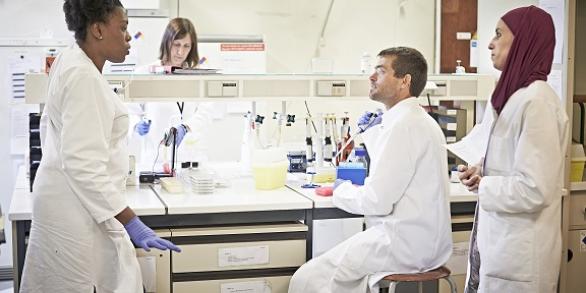We're hiring ! Join us and make a difference in our hospitals
Group A Streptococcus

What is streptococcus A?
Group A Streptococcus is a bacteria that causes various clinical symptoms, such as angina, impetigo or scarlet fever, but can also cause invasive infections that are more rare but more serious.
In rare cases, so-called "auto-immune" complications can arise that affect the kidneys (acute glomerulonephritis) or the joints and heart valves (acute articular rheumatism). This bacteria is also responsible for very aggressive and potentially lethal infections such as septic shock or necrotizing fasciitis. These serious illnesses, which are fortunately rarer, require rapid treatment in intensive care.
Care
Most anginas in children are due to viruses and do not require antibiotics. However, in some cases the doctor may decide to carry out a throat swab to search for the presence of group A Streptococcus and recommend treatment with antibiotics depending on the result. To improve your child's comfort the doctor will also prescribe painkillers and drugs to reduce the fever, always adapted to the child's age and weight. If necessary, and depending on the type of infection and seriousness, a multidisciplinary approach will be organised to provide the best possible treatment for your child. The medical follow up will depend on the diagnosis.
Advice for parents
If your child has strep throat, make sure he or she stays well hydrated by regularly offering cold fluids. Hydration status can be assessed by diuresis (making sure they continue to urinate properly). To encourage feeding, offer soft, cold foods on a regular basis. Administering painkillers in the doses prescribed by your paediatrician can also improve comfort. If antibiotics have been prescribed, be sure to administer them at the times and for the duration agreed. If your child's general condition deteriorates, or if there is a change in behaviour or consciousness, go to emergency.


Research
Pierre Smeesters, head of the Paediatric Department at the Children's Hospital within the H.U.B., supervises, with Professor Anne Botteaux, a team of 20 researchers at the Molecular Biology Laboratory (ULB) on the Erasmus campus.
This team is working in particular on the group A Streptococcus with the aim of arriving at a better understanding of the mechanisms of infections caused by this bacteria so as to develop a vaccine.